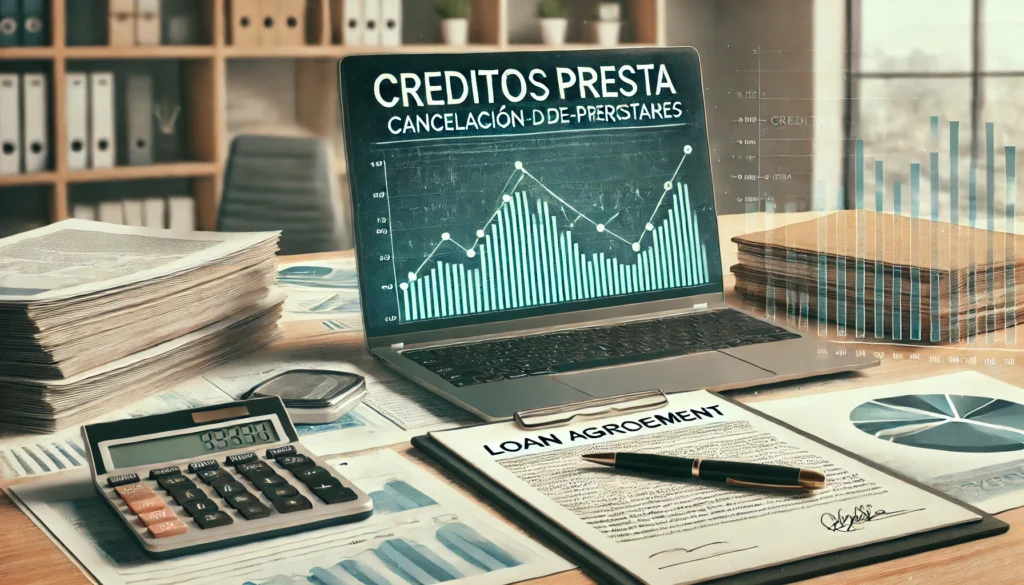A private loan refers to a loan agreement made directly between two individuals, without any involvement of a bank or financial institution. These types of loans are typically used for personal purposes, such as lending money to a friend or family member. For a comprehensive guide, visit https://creditospresta.com/cancelacion-de-prestamo-entre-particulares to understand the importance of clear agreements to ensure smooth transactions.
While private loans offer flexibility and ease of access to funds, they also require careful attention to detail. A properly documented loan agreement helps prevent future misunderstandings or conflicts.
Reasons to Cancel a Private Loan
There are several reasons why a private loan might need to be canceled, including:
Full Repayment by the Borrower
The most common reason for loan cancellation is the full repayment of the loan amount. When the borrower repays the agreed amount in full, it signals the completion of the loan. This needs to be documented to avoid confusion and ensure that both parties acknowledge the loan has been settled.
Debt Forgiveness by the Lender
In some cases, the lender may choose to forgive the loan entirely. This can happen in situations where the borrower is facing financial hardship, or the lender simply decides to relinquish the remaining debt. It is essential to document such forgiveness to avoid any potential future claims from either party.
Agreement to Terminate the Loan
Both parties may agree to cancel the loan before the full amount is repaid. This might happen if circumstances change, such as the borrower’s inability to repay the loan, or both parties decide that they no longer wish to pursue the loan under the original terms. In such cases, it’s vital to have a formal agreement in writing to avoid misunderstandings.
External Factors
Other external factors, such as the borrower’s bankruptcy or significant financial difficulties, may make it impossible for them to continue repaying the loan. If both parties agree to cancel the loan, it is essential to document this decision in writing.
Key Components of a Private Loan Agreement
Before considering loan cancellation, it’s important to understand the key components that should be included in a private loan agreement:
- Parties Involved: The names and personal details of both the lender and the borrower should be clearly stated.
- Loan Amount: The exact amount of money lent, as well as any interest rates (if applicable).
- Repayment Terms: This includes the repayment schedule, method of payment (e.g., bank transfer, cash), and due dates.
- Penalties for Default: If the borrower fails to repay the loan, penalties should be specified, such as interest charges or additional fees.
Having these elements in writing ensures that both parties are on the same page and minimizes potential disputes in the future.
How to Cancel a Private Loan
The cancellation of a private loan involves a few critical steps to ensure that everything is handled legally and correctly. Below is a breakdown of the steps:
Full Repayment Process
If the loan is repaid in full, the borrower should request a receipt from the lender. This receipt serves as proof that the loan has been fully repaid and that no further payments are due. It’s important that both parties keep copies of these receipts for future reference. Additionally, if the loan was notarized or legally documented, the lender should issue a formal cancellation statement.
Drafting a Cancellation Agreement
If the loan is being forgiven or canceled before full repayment, both parties should create a cancellation agreement. This document should clearly state:
- The details of the loan (amount, terms, dates).
- The reason for cancellation (e.g., debt forgiveness or mutual agreement).
- A statement that both parties agree to the cancellation.
Both the lender and borrower should sign the agreement. Having a witness or a notary present during the signing adds extra legal protection.
Addressing Tax Implications
In some countries, a forgiven loan might be treated as a gift or donation, which may be subject to tax. Depending on the jurisdiction, the lender may be required to report the loan forgiveness to the tax authorities. It is always a good idea to consult with a tax advisor to understand the potential tax implications and ensure compliance with tax laws.
Legal Considerations in Loan Cancellation
Cancelling a private loan without proper documentation can lead to serious legal complications. It is essential to consider the following:
- Written Documentation: Always have a written agreement when canceling a loan. Whether it’s a full repayment or a forgiveness agreement, having everything in writing protects both parties and ensures clarity.
- Dispute Resolution: If there is a dispute about the loan’s cancellation, having written proof will help resolve the issue quickly and fairly.
- Legal Advice: In complicated cases, particularly with large sums of money or ongoing disagreements, seeking legal advice is highly recommended. A lawyer can assist in drafting the proper documents and ensuring that all legal requirements are met.
Tax Considerations in Loan Cancellation
Loan cancellation might have tax implications that both parties need to be aware of:
- Taxable Income: Some jurisdictions treat forgiven loans as taxable income for the borrower. This means that the borrower may need to report the amount of forgiven debt on their tax return.
- Gift Tax: If the loan is forgiven, it may be considered a gift from the lender to the borrower. This could trigger gift tax obligations for the lender, depending on the amount and the local tax laws.
- Consulting a Tax Expert: Tax laws vary significantly from one country to another, so it is essential for both parties to consult a tax professional to ensure they comply with relevant tax regulations.
Common Challenges in Loan Cancellation
Despite the best efforts, there are common challenges that can arise during the loan cancellation process:
- Disputes over Repayment: If the borrower and lender do not keep proper records of payments, disputes may arise over whether the loan has been fully repaid.
- Lack of Documentation: Cancelling a loan verbally or without proper documentation can lead to confusion and potential legal battles.
- Tax Issues: Failure to understand tax obligations related to loan forgiveness can lead to fines or penalties.
- Emotional Tensions: When loans are made between friends or family, emotions can sometimes cloud judgment, making the cancellation process more challenging.
Steps to Ensure a Smooth Cancellation Process
To ensure a smooth cancellation process and avoid any issues, follow these best practices:
- Before Cancelling: Review the original loan agreement to confirm the repayment terms and status. This ensures both parties agree on the terms.
- During Cancellation: Draft a formal cancellation document and have it signed by both parties. Ensure that both the lender and borrower receive a copy of the signed agreement.
- After Cancellation: Keep all records of the cancellation and repayment for future reference. If applicable, report the cancellation to the tax authorities.
Benefits of Proper Loan Cancellation
Properly handling the cancellation of a private loan has several benefits:
- For the Borrower: Cancelling the loan clears the borrower’s financial obligations, providing peace of mind and ensuring there are no future disputes.
- For the Lender: The lender can ensure that there are no tax or legal issues related to the loan forgiveness and maintain a positive relationship with the borrower.
- For Both Parties: A formal loan cancellation prevents misunderstandings, strengthens trust, and provides clarity for both the borrower and lender.
Conclusion
The cancellation of a private loan is an essential step in ensuring that all financial obligations are settled and that both parties remain protected. For detailed guidance, visit https://creditospresta.com/cancelacion-de-prestamo-entre-particulares to learn about following proper legal and tax procedures to ensure a smooth process. By documenting everything and seeking professional advice when needed, both the lender and borrower can avoid future conflicts and maintain healthy financial relationships.
FAQs
What is the first step to cancel a private loan?
Review the original loan agreement and confirm repayment status or terms for forgiveness before proceeding.
Is verbal agreement enough to cancel a private loan?
No, always document the cancellation in writing to ensure legal clarity and avoid future disputes.
Are forgiven private loans taxable?
In some jurisdictions, forgiven loans may be considered taxable income or gifts, so check local tax laws.
Can I cancel a loan if the borrower is unable to pay?
Yes, through a mutual agreement or debt forgiveness documented in writing to formalize the cancellation.
Do I need a notary for private loan cancellation?
While not mandatory, notarization adds legal weight and is recommended for high-value loans or complex cases.
Article Recommendations
Invest1Now.com Real Estate: Your Gateway to Smart Property Investments
gomyfinance .com: Master Personal Finance with Simple Solutions
Amey Enterprises LA Real Estate: Professional Property Management in Los Angeles
Romeo Kapudija Real Estate: A Leader in Modern Living Solutions












